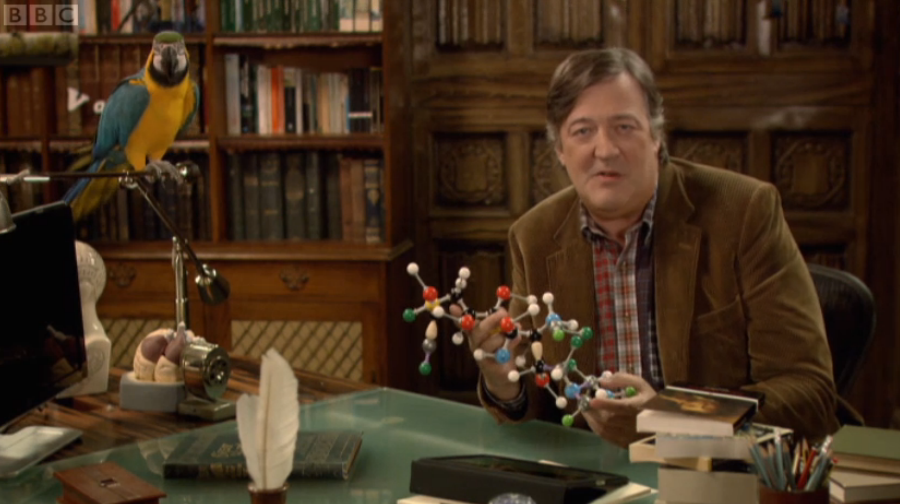What if there had never been a cognitive revolution? Apparently, nothing would really be all that different according to Nicolas Baumard over at ICCI. It’s all speculative, in a similar vein to alternative history fiction (I recommend: Making History by Stephen Fry and Difference Engine by William Gibson and Bruce Sterling), with Baumard stating:
My point here is that these key ideas would have emerged even without a Cognitive Revolution. Take for instance the idea that the mind cannot be a blank slate. This idea is totally natural to evolutionary biologists. What about the mind as “a complex system composed of many interacting parts”? Without going back to La Mettrie, Hutcheson or Descartes, one can argue that the idea of modularity is at the core of the research program of neuropsychology since its beginning (the same is true, albeit at a lesser degree, for evolutionary biology). We should not forget as well that, with or without the Cognitive Revolution, brain imaging techniques would have emerged and would have joined neuropsychology and evolutionary biology in decomposing the mind. Add the methodological advances of developmental psychology or social psychology – which were not part of the Cognitive revolution – and you get a pretty big part of today’s ‘Cognition and Culture’.
‘Mad Men‘ -ese. Ben Zimmer has a cool article on Mad Men (easily one of the best shows to have emerged in recent years) and its dedication to accurately portraying 1960s dialogue. But with such dedication comes equally dedicated, and pedantic, criticisms of some of the lines used. For example, Zimmer points to Don’s line “The window for this apology is closing” as being tied to the 70s use of window in a metaphorical sense. On another note: the new season of Mad Men begins tomorrow (25th June) in America.
A growing isolated brain can organize itself. Deric Bownds points to an article by Zhou et al (2010) which disconnected a mouse’s neocortex from the rest of its brain to see how the surface map developed. The results:
During these weeks, the mutant mice, despite having disconnected brains, display a variety of behaviors: eating, drinking, walking, and swimming. Thus, “protomap” formation, namely cortical lamination and formation of areas, proceed normally in absence of extrinsic connections, but survival of projection neurons and acquisition of mature morphological and some electrophysiological features depend on the establishment of normal cortical–subcortical relationships.
Things I’d like to see: a nice, simple, colourful website on evidence-based social policy. Being an avid reader of Ben Goldacre’s Bad Science column, and having read his book of the same name, I was surprised to find that he has another blog. Anyway, the linked post is fairly self-explanatory: he’s calling for someone to create a website looking at evidence-based social policy (something he’s been discussing since at least 2007). I’m a big fan of this idea, which would see social policy based on less rhetorical wrangling and more on actual evidence:
There are three key stages in evidence-based practise: you generate evidence; you collate and appraise it, and then you disseminate and implement. It feels to me like the last bit is currently underdone, and often it takes one clear information hub, or an organisation devoted to promoting something, to move things on.
Why money makes you unhappy. Money is apparently not very good at making us happy. Jonah Lehrer writes about a study exploring the experience-stretching hypothesis, and how it relates to money and happiness. Basically, the argument is that because money allows us to enjoy the best things in life, we actually end up lessening our ability to enjoy the mundane aspects of our life. As the mundane aspects are most frequent, then this isn’t necessarily a good thing. This comes on the back of another paper claiming that the United States, currently the richest nation on Earth, is slowly getting less satisfied with life. As the current study states:
Taken together, our findings provide evidence for the provocative notion that having access to the best things in life may actually undermine one’s ability to reap enjoyment from life’s small pleasures. Our research demonstrates that a simple reminder of wealth produces the same deleterious effects as actual wealth on an individual’s ability to savor, suggesting that perceived access to pleasurable experiences may be sufficient to impair everyday savoring. In other words, one need not actually visit the pyramids of Egypt or spend a week at the legendary Banff spas in Canada for one’s savoring ability to be impaired—simply knowing that these peak experiences are readily available may increase one’s tendency to take the small pleasures of daily life for granted.


